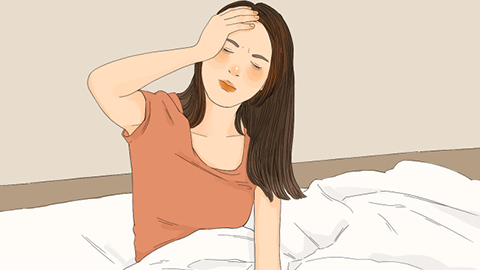What causes the feeling of chest discomfort and extreme distress at night, and what should I do about it?
Heart discomfort and significant irritability at night may be caused by improper sleeping posture, emotional stress, gastroesophageal reflux disease (GERD), arrhythmia, or autonomic nervous system dysfunction. Symptoms can be improved through posture adjustment, emotional support, and medication. If symptoms occur frequently or are accompanied by chest pain or palpitations, prompt medical attention is necessary.
1. Improper Sleeping Posture: Lying face down or using a pillow that is too high can compress the chest cavity, impair circulation, and exacerbate feelings of distress. It is recommended to switch to back or side sleeping and use a pillow of appropriate height to reduce chest pressure.
2. Emotional Stress: Unresolved stress during the day or excessive thinking before bedtime can overstimulate the sympathetic nervous system, leading to heart palpitations and irritability. Listening to calming music, practicing deep breathing, avoiding stressful thoughts before sleep, and timely emotional counseling are advised.

3. Gastroesophageal Reflux Disease (GERD): When lying flat at night, stomach acid may reflux into the esophagus, causing discomfort behind the breastbone and irritability, possibly accompanied by acid regurgitation or heartburn. Patients may take medications such as omeprazole enteric-coated capsules, lansoprazole enteric-coated tablets, or domperidone tablets under medical guidance to relieve symptoms.
4. Arrhythmia: Abnormal heart rhythms may worsen at night due to increased vagal nerve activity, manifesting as palpitations, heart discomfort, and irritability, sometimes accompanied by dizziness. Under medical supervision, medications such as metoprolol sustained-release tablets, Wenxin Granules, or propafenone tablets may be used to alleviate symptoms.
5. Autonomic Nervous System Dysfunction: Imbalance in nerve regulation may become more apparent at night, causing heart discomfort and restlessness. Although no organic disease is present, symptoms may recur frequently. Medications such as oryzanol tablets, vitamin B1 tablets, or Shugan Jieyu Capsules may be used as directed by a physician to improve symptoms.
Maintain regular sleep patterns and avoid staying up late, eat light meals and avoid overeating before bedtime, engage in mild exercises such as walking or yoga, and maintain emotional stability to reduce mood fluctuations and physical strain.




